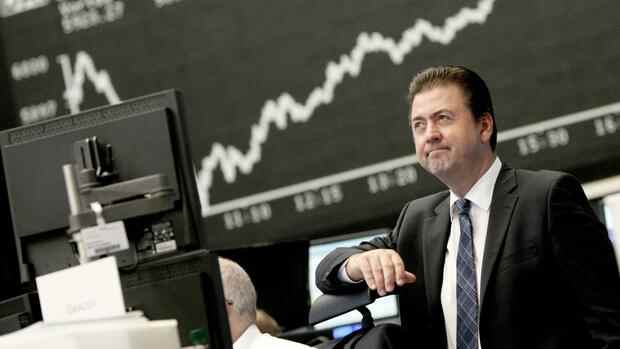In 2021, the Dax companies made more sales than ever before. But how much longer can this growth continue?
(Photo: dpa)
Almost as profitable as never before: Only in the boom years just before the turn of the millennium and again in 2007 was Germany’s listed large-scale industry as profitable as it was in 2021 – a year that was still completely under the spell of the pandemic. So what more could investors ask for? At SAP and probably at least eight other companies, more than ten cents of net profit are left over for every euro earned. This has never happened before – and is also thanks to the increase in the Dax, in which highly specialized companies such as the diagnostics company Qiagen and the laboratory supplier Sartorius are now listed.
But that’s where the jubilation ends, because it’s a retrospective. Because demand was greater than supply, many companies were able to push through higher prices. That drove the yields up: For every euro of sales, the Dax companies had an average of 7.3 cents in net profit – after 2.7 cents in the previous year.
But the real challenge begins now. What to do with the high profitability and record profits that the companies have generated?
“Focusing,” said the top managers: Daimler is concentrating on its premium brand Mercedes. Siemens mutates into a technology group and splits off what is associated with old industry.
Top jobs of the day
Find the best jobs now and
be notified by email.
Without a doubt, this strategy is not wrong. For a long time, German stock corporations were accused of not specializing enough and of clinging to dying businesses, like the banks with their nationwide branch network and Siemens with the power plants that have now been outsourced.
However, it is threatening to be forgotten that new sales and thus future profits can only be generated with new business areas. Since taking office almost two years ago, SAP boss Christian Klein has promised that customer satisfaction is paramount. Gone are the times of his predecessor: Bill McDermott had developed lucrative business areas with aggressive growth through takeovers, especially in the USA, which meant that integration fell short. A mix of both approaches would be the best way: acquisitions and integration.
This also applies to Fresenius – for a long time Germany’s flagship healthcare group on the financial markets. Ex-boss Ulf Mark Schneider bought in diligently, drove up the debt and strained the balance sheet with goodwill for which there is no material equivalent. But during this time, sales and profits rose by a good ten percent each year to new record highs – and with them the share price.
Successor Stephan Sturm has been paying more attention to costs for a good five years, broke off a daring takeover in the USA and has not dared any big adventures since then.
The consequence of such prudent corporate policy is stagnating sales. While more returns can be extracted from them thanks to focus, this trend is finite unless new sales are added to generate future profits.
Corporations like Amazon are a role model for this. With the expensive expansion of its cloud business, the online retail giant is reinventing itself without selling its traditional business. This allows for growth in size in order to invest profits from one business in an even more promising business. There is a lack of such daring ideas in the Dax. This is one of the reasons why the stock market barometer is worse off than the Dow and S&P 500 on Wall Street in the long run.
More: Danger for the profit boom – the risks are increasing
